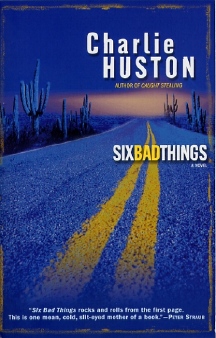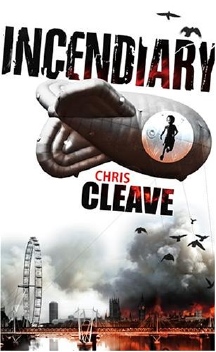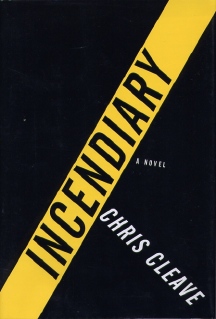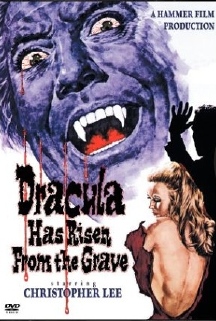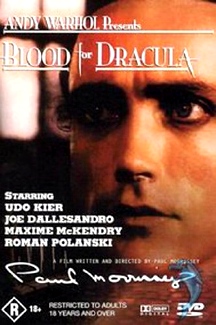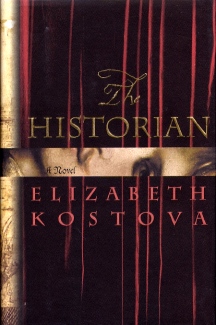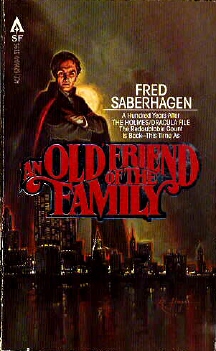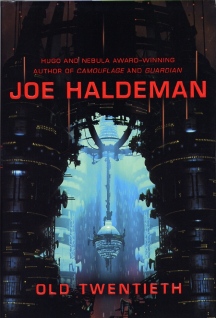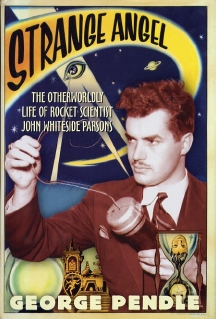|
|
|
This Just In...News from the Agony Column
|
07-22-05: Charlie Huston Finds 'Six Bad Things' |
|||
| What
happened to the cat? By Terry D'Auray
While 'Caught Stealing' introduced Hank as a good man caught in a spiral of unearned violence, a "they're all out to get me but I don't know why" story, 'Six Bad Things' is nothing of the sort. Hank does indeed find any number of unsavory thugs out to get him, but he surely knows exactly why. It's that four and a half million he walked away with in the first book, money that doesn't really, truly, actually belong to him, although he has suffered enough brutal beatings and stomach-turning torture to lay claim to having earned at least some of it. Hank's living the good life in a quiet Mexican beach town, until a backpacker with a Russian accent shows up and starts asking questions about his past, his money, and his parents. That's the set-up for a Hank-on-the-run story that reprises the Russian and Texan thugs from the first book and adds Mexican federales, deceitful businessmen and wild surfer bums to pump up the voltage. You can be assured that the pace is relentless, the violence is forceful and frequent, and the writing is vital and vigorous. 'Six Bad Things' is a first-rate page-turner from a talented action writer. But having read 'Caught Stealing, there are a couple of questions that beg to be asked: What happened to the cat? And why only six? |
|
07-21-05: Chris Cleave is 'Incendiary' |
||||||
Timing
is Everything
Of course, all of this might be for nought were Cleave's novel simply a thriller in which good guys chase bad guys. No, it's the emotional core of this novel that makes the whole sad coincidence so deeply frightening. Written as a series of letters to Osama Bin Laden, 'Incendiary' tells the story of a woman whose husband and four-year old son are killed in a suicide bomb attack at a soccer match in London. Her life torn asunder, she decides to fight back by joining the police in a civilian job as security measures transform London into a prison without bars. Matters go from bad to worse, as tends to happen. Cleave keeps everything this side of exploitation by virtue of nailing, absolutely nailing the voice of a grieving mother. By viewing events from this perspective, he emphasizes the emotional and personal costs of the battle. He also brings matters down to a level that every reader can comprehend. It's a clever tack that doesn't read clever. Instead, it reads like a firehose of anger, grief and terror.
But 'Incendiary' in the US has a lot going for it. In the first place, the title is attention-grabbing but not so specific that it will automatically remind readers of the tragic events in London. Moreover, by simply running the first portion of the novel on the back cover, they're going to grab a lot of readers' attention, and that's exactly what may help this novel survive its own unfortunate prophecy. Because the novel grabs you from page one both emotionally and with a riveting plot. One might be tempted to predict the novel will be a success as result of the events mirrored within its pages, but that would certainly be a mistake. As with any novel, 'Incendiary' will succeed at least in part based on its merits as a book. If readers pick it up and find themselves responding to the voice that plays in their heads, if that voice proves to be worth listening to not because what it says came to pass but because what it says is worth hearing, then 'Incendiary' might find a life beyond tragic coincidence. |
|
07-20-05: Elizabeth Kostova's 'The Historian' has Risen From the Grave |
|||||||||||||
No
Keeping a Cultural Icon Down!
In the time since, I've grown dog-tired of this horror fiction trope. Yes, I read the first three Anne Rice vampire novels obsessively when they came out, and enjoyed them. (And I have the signed first editions to prove it.) I really enjoy the Kim Newman novels, from 'Anno Dracula', surely one of the greatest ever, to 'The Bloody Red Baron' to Kim Newman's 'Andy Warhol's Dracula'. Every time I come upon the latest spin, I swear : "NO MORE VAMPIRES." But when you live in Santa Cruz, the setting for one of the great vampire movies ('The Lost Boys'), well you should know better and I should know better. It was my intention to escape 'The Historian' (Little Brown / Time Warner Book Group ; June 14, 2005 ; $25.95) by first-novelist Elizabeth Kostova, but having opened the tome (or should I say tomb) of Dracula one more time, I was unable to escape. Now, number-two New York Times bestsellers probably dont need a write-up here. If you can duck the stacks and standees in bookstores, however, if you can bypass the high-powered hype machine, then you might find in 'The Historian' a bit of something you didn't expect. Yes, this story of a father and daughter's search for Dracula has plenty of Stoker references, and oodles of That Book-style looking-for-clues travelogue. But what I least expected was for this vampire novel to resurrect another horror writer's name in my memory -- that of H. P. Lovecraft. Readers who enjoy Lovecraft's scholarly heroes may find quite a bit to enjoy here. Strike that, you'll find two boatloads of dirt-filled coffins to enjoy here.
After all, if youre aiming to scare someone with fiction, maybe it's actually a good idea to write about someone who is scared by what they find in books. The characters in Kostova's novel certainly are, and for good reason. Kostova's prose is nicely turned, and she offers up heaps of books real and invented, read and unread to help shape the story. So if you like books about books and libraries, the 'The Historian' might well be the bestseller worth buying.
What's most entertaining is that one finds one's self talking about originality when all of these book stem from a single source, namely, Bram Stoker's 'Dracula'. To my mind, one of the strongest recommendations for Kostova's 'The Historian' is that it is quite close in structure and tone to Stoker's original, combining correspondence and travelogues with creepy, creeping menace. And finally, perhaps the best bit. Given that 'The Historian' spends so much time in libraries, there's the hope that it will inspire readers who do not frequent the library to begin doing so. Back in 1969, when I was enthralled by Christopher Lee, I was also enthralled by libraries and bookstores. My father used to visit the library regularly, and he'd bring home a stack of books that would follow him from chair to chair. Yes, it does run in the family. Blood, ink and reading. So maybe we don't need to write off vampires after all. |
|
07-19-05: Joe Haldeman Looks to the 'Old Twentieth' |
|||
Time
Travel is a Virtual
One of the reasons we love Joe Haldeman is that he's not writing an endless series, nor is he authoring book-bricks. What we get every year, dependably and reliably, is a nice, short succinct stand-alone novel that goes in a direction very different from last year's work. So what do you get in your 257 pages from Mr. Haldeman this summer? You can start off with a fine, very 70's cover painting by Fred Gambino. But as usual, it's what's inside that counts...in this case, inside the Aspera, a generation starship on the way to Beta Hydrii. Choosing not to spring the old FTL card -- purely for reasons of plot -- this journey is a thousand-year tour. The citizens manning the ship are nearly immortal. They heal spontaneously, they don't age, and they're immune to most diseases. Except boredom. What better way to pass their time than living in the hurly-burly rush of the Old Twentieth century Earth? Yes, you're reading that right, and if you think about it, it figures. There's never been a shortage of nostalgia. I mean, we have "Medieval Times" restaurants -- one figures prominently in 'Freddy and Fredericka' by Mark Helprin. Compared to the twentieth century, medieval times were barbaric and barely hospitable. We have "Colonial Times" too, covered so well in Chuck Palahniuk's 'Choke'. Even with the amenities of the twentieth century to return to each night, the job working at Colonial Times sounds horrific. But still both thrive in the comparably comfortable present. So it's pretty easy to understand a future in which bored near-immortals, hurtling through space, engage in a little VR time travel, checking out the brutal but vital Old Twentieth. Jacob Brewer is the man in charge of VR time travel on board the Aspera. Eight hundred crewmembers make ample use of the complex machinery that allows them to live in a virtual twentieth century. It proves to be so complex and so smart that it becomes sentient, and following in the tracks of such famous AI's as Hal 9000 from '2001', it takes over the ship. Then it makes a management-level decision. Those many hazards that the crew enjoys without fear in VR? Now they've become potentially fatal. Crewmembers start dying. This is bad for the mission, but the time machine wants Jacob to see this as the correct path -- and for him to enter it to discuss the matter of life and death. Because facing death is so life enhancing! And so the chase is on through the twentieth century both as we do and do not know it. Haldeman offers up a surreal adventure in the present and the future and does so in less space than many writers require to set the scene. We look forward to these little bits of time travel -- into the future -- from Haldeman. Just so long as he remains willing to let us live through them. |
|
07-18-05: George Pendle's 'Strange Angel' |
|||
John Whiteside Parsons Explores the Dark Side
'Strange Angel' tells the really, really, really weird story of John Whiteside Parsons, the kind of guy who could only exist in the world of 1950's rocket science. Parsons was a self-taught chemist, a rich-kid misfit who spent his boyhood in the 1920's reading Amazing Stories and launching rockets in his backyard. At the age of nineteen, when he first proposed marriage to Helen Northrup, he gave her a diamond ring and a .25 caliber pistol. Yes, she's the daughter of that Northrup. But it gets far, far wilder. While Parsons was part of the "Suicide Squad" at Caltech, some of who went on to form the JPL, he was also exploring the occult. After all, if the science fiction from Amazing Stories could prove to be true, why not the horror stories as well? And that's where it really starts to get strange. This is probably the only non-fiction book youre going to read that includes a walk-on cast of Aleister Crowley and L. Ron Hubbard. Parsons had an unhealthy interest in the occult, and he pursued it to the point of orgies and incantations. As he pursued his interest in the "Otherworldly", his career in blowing shit up fizzled. He lost his job and his wife. He even managed to lose his girlfriend -- Helen's younger sister, Betty -- to L. Ron Hubbard. Albert Einstein, Robert Heinlein, Howard Hughes -- Parsons' life bordered all of theirs. Were you to write an alternate history, you'd have a hard time bringing together such a diverse cast. So here's another book to add to your already huge stack of "science fiction biographies" for summer reading, one you can slot between reading Steve Aylett's comparatively calm and believable -- but entirely fictional -- 'Lint' and M. G. Lord's 'Astro Turf'. And let me recommend against that gun and ring combo. That's the kind of thing that definitely sends the wrong message. |
